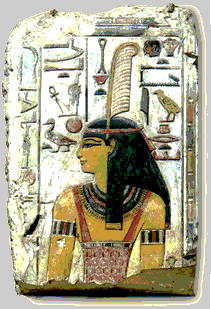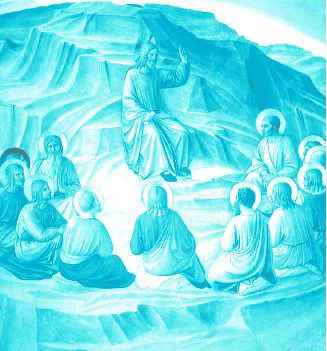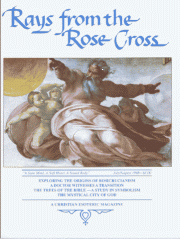
Maat, the Truth-Goddess in Egiptian tradition.

Maat, the Truth-Goddess in Egiptian tradition.
To Tell the Truth
by Jamis Lopez
Rays from the Rose Cross magazine Jan/Feb 2004 issue
We know that to lie is wrong, but have you questioned whether it is right to tell a so-called “white” lie? The answer is that it is not. We call lies “white” if they seem harmless; however, in spiritual considerations we talk about right and wrong based on underlying principle, not on the face of things; not as they appear to be, but as they are in truth.
TO LIE IS SPIRITUAL DEATH
We learn early on in the Western Wisdom Teachings that a lie in the Desire World “is both murder and suicide,” destroying what it falsely depicts, and itself in the process.
In Max Heindel’s study entitled Archetypes, we read that “whenever an occurrence takes place, a certain thought form generated in the invisible world makes a record of the incident. Every time the event is talked about or commented upon, a new thought form is created which coalesces with the original and strengthens it, provided they are both true to the same vibration. But if an untruth is told concerning what happens, then the vibrations of the original and those of the reproduction are not identical; they jar and jangle, tearing each other to pieces ” (p. 14).
This passage is repeated and elaborated on in The Web of Destiny (pp. 54-55), where we learn that our thought patterns during life directly impact the archetype of the body upon which our physical condition in life depends, and aligning ourselves with what is true will result in improved health in the future.
TO LOVE THE TRUTH
So when we say “the truth,” we are referring to what we say in relation to what we have perceived to be so, and also in relation to the form recorded in the invisible realm. If we have in mind one thing and we misrepresent it, we are lying. If we make little effort to see clearly, to be objective, and are careless with the truth, we are guilty as well. So then we must love the Truth, that we might seek it.
Max Heindel writes in The Web of Destiny that “even today only a very small percentage are ready to live as near the truth as they see it, to confess it and profess it before men....” In times past “the love of truth [was] almost negligible,” and men were naturally inclined “to disregard the interests of others, and to tell a lie seemed in no way reprehensible and sometimes even appeared meritorious” (p. 67).
SELF-CENTEREDNESS
In lying, we must have a target, someone to lie to, and about. In lying we are disrespecting someone, and proving to be self-centered, even cowardly, in protecting our self-interest. Are you such a coward, or am I? It could be so. We have been, and could yet be, bringing such innate tendencies of self-interest and protection with us from the past. But do we need to continue to be cowardly? I think not. If our spiritual journey is to begin, it has to begin someplace. Truth telling is a practical starting point.
We are not loving man nor God when we lie. If we are to love others as ourselves, then we begin by providing the truthful answers, which we ourselves would find acceptable—nothing less, no matter to whom. Telling the truth to both those we love and those we don’t is one way of fulfilling the mandate to “Do unto others even as you would have them do unto you,” and to “love thine enemy,” as given in the Sermon on the Mount (Matt. 5-7).
PRACTICE TO BE PERFECT
The Apostle James writes: “If any man offend not in word, the same is a perfect man, and able also to bridle the whole body” (3:2).
In Occult Principles of Health and Healing, p. 67, Max Heindel writes, “It is only when we enter into the higher realms, and particularly into the Region of Concrete Thought, that the eternal verities are to be perceived; hence we must necessarily make mistakes again and again, even despite our most earnest efforts to always know and tell the truth.” We need to put our Christian principles into practice, beginning right now “to tell the truth.”
THE JUPITER PERIOD
What will happen if we start to tell the truth all the time? Can you imagine? One writer tried to imagine and wrote a story which was made into a movie called Liar, Liar, featuring Jim Carrey. For 24 hours an incorrigible liar had to tell the truth. It was very embarrassing, and very difficult for him.
In the forthcoming Jupiter period, truth and falsehood will be patent. No matter what we say, people will see what we mean in their mind’s eye. It will be uncomfortable for many of us! Even now perceptive people know when we are lying by our manner, tone of voice, nuances of expression, or simply by the inconsistencies in our testimony.
Scientific techniques are now used by inquisitors to determine whether or not we are telling the truth. Even the direction in which we look is said to reveal whether we are trying to recall something or scrambling to devise an impromptu fabrication.
AWORD OF CAUTION
Before we begin to “tell the truth,” we need to be cautioned not to overstep ourselves. If we cannot be objective, we cannot tell the truth. A thought form of the event has already been recorded, independent of our perception.
Subjective, negative opinions are not “the truth,” however strongly we believe them, or however often we repeat them. A negative opinion is data to which negative feeling has been coupled, and more often than not the result is a precipitous judgment. Lies are dangerous, particularly “evil and malicious lies [which] can kill anything that is good, if they are strong enough and repeated often enough” (Cosmo, p. 43).

"Sermon on the Mount"
Fresco, Fra Angelico (1387-1455),
Museo di San Marco, Florence
Sermon on the Mount
As the Jehovah-originating Ten Commandments are particularly directed toward subduing the desire body, the principles enunciated by Christ in the Sermon on the Mount work on the vital body and emanate from the World of Life Spirit. students we endeavor “to speak, act, and see only the good in (our) daily associations with others.” We are directed to see the positive in any situation, for thereby the positive will strengthen. When identified and spoken of, the truth in a situation or a person will be reinforced. It was noted by a retired mathematics professor, an atheist without benefit of knowing spiritual laws, that what we are grateful for increases.
Of the liar we might dismissively say, “He just wants attention.” Do we know that? We say it because it’s easy to say and we are irritated. The truth is not always a first priority; insisting on being truthful can be inconvenient. It requires our attention when we may not be interested. Our snap judgments, born of annoyance and impatience, jar with things as they are. Once spoken, the same and similar rash conclusions are more easily and more frequently repeated.
Do we care about the impact we might have on the individual we speak of? “Well, it’s ‘the truth,’ isn’t it?” “It’s just the truth!” we protest. Is it? Probably not, but do we care? We must put our self aside, and ask, what is the truth here?
Spiritual aspirants learn to correctly observe, seeing themselves in the “third party.” The truth enables us to help, not hurt, others, if we express it well. Objective analysis will sometimes find us wrong, and sometimes not. Objectivity seeks resolution; fault finding, it seems, is self-perpetuating, never shuts up.
SEEING THE GOOD
Telling “the truth” is not using our analytical skills to find flaws in others and to point them out, often with no generosity of spirit. As Rosicrucian students we endeavor “to speak, act, and see only the good in (our) daily associations with others.”
We are directed to see the positive in any situation, for thereby the positive will strengthen. When identified and spoken of, the truth in a situation or a person will be reinforced. It was noted by a retired mathematics professor, an atheist without benefit of knowing spiritual laws, that what we are grateful for increases.
As set forth in The Desire Body, the occult scientist bases his actions on cosmic law: Seeking “the good in evil will, in time, transmute the evil into good. If the form that is built to minimize the evil is weak, it will have no effect and will be destroyed by the evil form, but if it is strong and frequently repeated, it will have the effect of disintegrating the evil and substituting the good. That effect, be it distinctly understood, is not brought about by lying, nor denying the evil, but by looking for the good” (p. 154).
HUMILITY AND COURAGE
Telling the truth is often a humbling experience; the temptation to lie is often to one we perceive as our adversary. Accordingly, when we tell the truth, we show respect to someone from whom we would deny it, especially when the truth points to our error.
Truth telling is not always easy, and can be injurious to our reputation, even to our life, and may require a faith which we simply don’t have. So we don’t tell the truth? Yet, the very least we must do is not lie to ourselves in an effort to justify a lie, and to know the difference between an excuse and a justification.
Corrie ten Boom writes in her book The Hiding Place that during the Nazi occupation of Holland, she told the truth to soldiers looking for Jews, pointing to the entrance of their actual hiding place. Who knows how, but by a miracle of faith, the soldiers did not look where she pointed.
THINKING DIFFERENTLY
Now that we have begun to pay attention to what we say, we are going to be disconcerted by how often we misrepresent the facts, or even lie. Acknowledging that some Rays readers may be far past this place of uncertainty, yet for the rest of us let us ask: How often do we say, or hear others advise, “Just say this,” or “Just say that,” or “You don’t have to say,” or “No one will know”? “Who is going to know?”
The first step is to eliminate those habits and practices which we would be hard pressed to confess. If we did, we cannot say we did not, and if we did not, we cannot say we did, and so on. If we said we did and we did not, we must correct our error, and if we did not and said we did, again we must correct ourselves.
Christ said that it is better to be hot or cold than lukewarm because He knew that if we err we will be caught and suffer for it—and learn by it. If we lie, we lose an important advantage as spiritual aspirants.
So how do we respond to difficult questions? What do we say when someone asks our opinion and what we are thinking is not what the questioner wants to hear? We could tell them what they want to hear; yet to say anything in contrast to our secret thought is to lie. Thoughts are things. The issue is crucial. Let us not minimize the consequences of being untruthful: “A lie is both murder and suicide.”
To start this process of being truthful, we stop thinking terribly critical thoughts; we lighten up. We learn to look upon others gently—as we would like to be looked upon—putting things in perspective. It is then that we find that the truth is not a negative opinion but a balanced perspective.
There are ways to answer people with tact, or with humor, on even the most sensitive issues. Ignorance is the only sin, said Max Heindel. Taking the time to understand what we see will reveal to us things which we would never know otherwise. Then, when we have a more informed perspective, we can learn to be gracious in our replies.
If confronted with a serious question which we would rather not answer, we can try being “firm but fair.” People respect “firm but fair”; you don’t want to lie and you don’t “need” to lie when you are “firm but fair.” Being fair, implies you are listening to objections and weighing your further response, modifying it if necessary.
LYING TO GOD
We are taught in the Western Wisdom Teachings to always look to others in terms of their higher selves, that part of God within each one of us. In doing this we are addressing God as He manifests to us. Would you lie to God?
A parallel to this concept is found in the astrology writings of Elman Bacher, where he says that “planets are people.” The cosmic forces represented in our natal charts, that is, in us, manifest to us through people. Do we lie to ourselves? Unfortunately, we do, and not infrequently. We say we don’t care, we don’t know, we cannot; and yet, we do care and we do know and, yes, we can.
RELATIONS WITH OTHERS
But there is more to this concept than the sentiment of it; if you give to people the truth and nothing less, you are honoring them and they will know it.
Negative predictions of what people may say or do to justify lying to them is unfair; people expect to be lied to, to be treated with disrespect, and so tend to react negatively. Give them the chance of dealing and your truthful reply, and with you fairly.
This approach does not guarantee immediate amity, and we are cautioned to not “regret” that we told the truth. People’s first reaction is often not their final reaction, but how other people react to us is not at issue here; we are taking ourselves to task, and if someone wants to contribute, let them.
If you lie for fear of what someone will say or do, all the more reason to tell the truth; you are being trapped by your fears and you will feel inferior. Providing accurate answers, which serve the interest of all parties to the question, serves the Truth, and God.
The only thing we have in common with others is God, and “God is Truth.” If we sacrifice God in our relationships, we will lose the dynamic dimension of the relationship, the dimension where we give and we grow and encourage others to do the same. In sacrificing our small ego, our “face,” for the sake of Truth, we are giving real value to the other; and we are living according to our motto—in “loving self-forgetting service to others.”
DIAMONDS IN THE ROUGH
Telling the truth can be difficult when when we do not make it a guiding principle of our lives, but as spiritual aspirants, there is an added advantage for us to tell the truth.
Max Heindel likens Rosicrucian Fellowship students, at this stage of their evolutionary career, to “diamonds in the rough.” It is through the pain of living that we are polished, that we are clarified, and can increasingly receive and transmit the Light. Telling the truth regarding something of which we are ashamed may very well cause us the pain of humiliation. But we should not shy away from this purgation. It is part of what we experience when we make the offering (of our lower nature) on the Brazen Alter in the cleansing fires of clear-eyed retrospection. If we protect ourselves from our due reckoning by prevaricating, what are we protecting? Our lower selves. Who are we hurting? Everyone, including our inner or higher Self, for we interpose the tissue of lies between the liar, our personal self, and living Truth.
But we are afraid. What will happen to us? That is the point at which we defer to God. We ask that His will be done, not ours. If, at the same time that we have refused to lie, we have opened up to allow censure by another, we have freed ourselves from the prison of isolation, where our sin would find us. Little, or nothing, of a negative nature comes to us that we did not in some way contribute to, but that does not prevent us from repenting, and praying that the Father show His benevolence towards us. That benevolence may come from an unexpected direction, even from our accuser.
While past actions are a “cause” of present conditions, so present actions determine our future, including prayers of repentance, which can help neutralize the effects of wrongful past actions. We are taught to repent and to pray for forgiveness for good reason. The first step is to confess our wrong doing. Simply telling the truth is the most basic of confessions, and can act to dissipate neurotic complexes built on guilt and feelings of being inferior.
It is the burning sensation of humiliation, followed by sincere remorse, that expunge the memory of our errors from the physical seed atom located in our heart. So why hide from such experience?
If telling the truth brings us face to face with what we have been and done, a being and doing we find objectionable, then why not tell the truth so we may repudiate and dismiss that being and doing?
Do not be afraid; for trusting other people with the truth in all that we say, no matter how awkward or painful it may be, will bring us rewards which we cannot anticipate.
-This article was published in the magazine "Rays from the Rosecross" (issue Jan/Feb 2004), published by The Rosicrucian Fellowship.

Jamis Lopez
The author, Jamiz Lopez is associated with The Rosicrucian Fellowship http://www.rosicrucianfellowship.org as Probationer. She is Editor of Mystic Christianity http://members.shaw.ca/jamis333/ , owner of “A Rosicrucian Fellowship” Forum in Ezboard http://pub144.ezboard.com/brosicrucianfellowship and moderator of "Rosenet" Forum in Yahoo http://groups.yahoo.com/group/rosenet . These groups originated as a contact point for discussion between members of the Rosicrucian Fellowship but they are not formally affiliated with, and they do not require one to be a member of, the Rosicrucian Fellowship.
Click here to open "To Tell the Truth" in pdf .
In order to view .pdf files you must have Acrobat Reader installed on your system. If you do not have the free Acrobat Reader, then visit Adobe's website and download and install the free Reader software. Thank you.
[TOP] [INDEX] [THE MYSTIC LIGHT] [HOME]
Rays from the Rose Cross

A Christian Esoteric Magazine
Established by Max Heindel
June 1913
The Rays from the Rose Cross Magazine is published by The Rosicrucian Fellowship and is devoted to a blending of Mystic Christianity and Scientific Thought.
![]() Subscribe to Rays Magazine
Subscribe to Rays Magazine
|
|
Click here to visit the Rosicrucian Fellowship Official Web Site
Click here to visit News About Mount Ecclesia English Edition

MYSTIC LIGHT is a Christian Esoteric Online Magazine created and supported by Students of the Rosicrucian Teachings and dedicated to promote The Western Wisdom Teachings and related subjects. It is related to The Rosicrucian Fellowship but not formally affiliated with it.
It is not an official website of The Rosicrucian Fellowship and does not necessarily represent the thoughts of Headquarters one way or another.
Writers of published articles are alone responsible for statements made
Editor & Web Master: Alexandre David
![]()